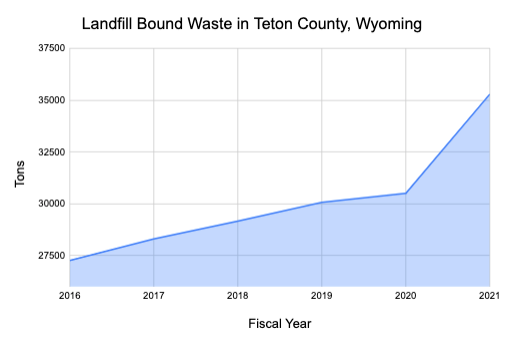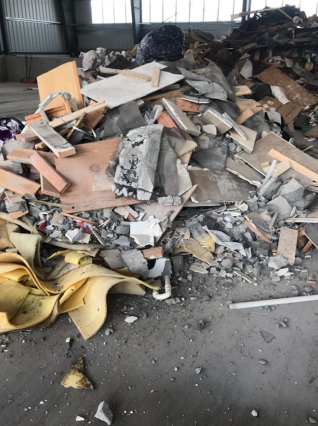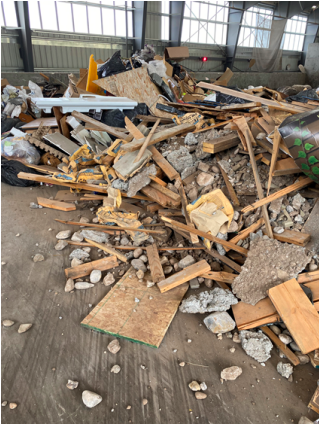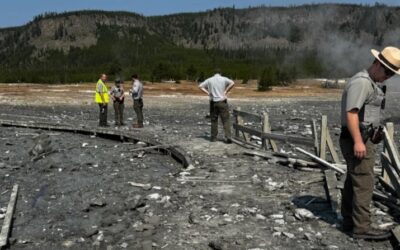Teton County has a trash problem.
In 2014, local elected officials set a goal of diverting 60% of the county’s waste—that is recycling it, composting it or otherwise keeping it from the landfill—by 2030. But according to Superintendent of Integrated Solid Waste and Recycling Brenda Ashworth, we’re not even close to meeting that goal right now.
“Currently, we are heading in the wrong direction,” she said.
Record-breaking visitors have used the county’s Transfer Station this summer. Combined with waste from locals, they sent 3,744.62 tons of trash to landfills in July—another record. That’s the equivalent of the weight of 300 school buses being hauled to Bonneville County, Idaho, every month, due to the fact that Teton County doesn’t have its own landfill. In June, 20 semi-trucks full of waste drove over the border in a three-day stretch, according to Ashworth, shattering the normal average of 12-15 truckloads in that same time period.
“In fiscal year 2021, our municipal solid waste that we hauled to Bonneville County was up 10%. Construction and demolition waste was up 32%, and that’s what I mean by we’re heading in the wrong direction,” Ashworth said.

Fiscal Year 2022 is off to another record-breaking start, according to data from Teton County Integrated Solid Waste and Recycling. (Will Walkey/KHOL)

An unsorted load is a pile of trash, including metal, wood, and other material, that should be separated out for recycling and/or diversion. (Courtesy of Brenda Ashworth/Teton County ISWR)
One of the most concerning trends Ashworth has seen this year is an uptick in unsorted loads, particularly from the exploding construction and demolition sector of Jackson Hole. That means folks are often dropping off heaps of wood, scrap metal, concrete, dirt and more all in one pile. To remedy this, Ashworth has tried raising the sorting fee—$325 a ton for Transfer Station staff to individually try and separate out pieces of trash that can be recycled or otherwise diverted.
“So, the sort fee really is intended to be a deterrent to people. But we have found that in some cases they’re just using the sort fee as the cost of doing business,” Ashworth said.

Construction and demolition waste is up 171% in 2021 compared to 2016, according to Transfer Station data. (Courtesy of Brenda Ashworth/Teton County ISWR)
But the cost of doing business for local construction companies is now costing Teton County in myriad ways. For one, staff are overworked at the Transfer Station, which, like other local employers, is struggling to maintain workers this summer. Plus, unsorted loads of trash wear down equipment. So, starting Aug. 9, anything unsorted will be rejected.
“We expect the Transfer Station to be damaged. It is a Transfer Station. We handle a lot of material that normally would not go anywhere else. But what we’re seeing is an increased level of damage that you would expect to see on a 10-year building. Not a two-year building,” Ashworth said.
When staff are overwhelmed with a sheer volume of material, as they have been this summer, more and more of it simply has to be trucked over to Idaho, leading to lower overall diversion rates and increased trash from Jackson Hole underground. Additionally, all those semi-trucks hauling material back and forth from Wyoming to Idaho costs the county and raises the local carbon footprint.
Ashworth said to turn these trends around, she needs people to sort their own trash adhering to the county’s standards.
“The sheer volume of unsorted construction and demo loads that are coming in means we don’t have the time to sort those loads. And really, it’s not our responsibility to sort those loads. It is the responsibility of the generator to sort those loads,” Ashworth said.
Ashworth said she’s confident that Jackson Hole can reverse current trends as more community members become aware of what’s happening at the Transfer Station. More information about Teton County’s landfill standards, how to sort loads and local Zero Waste initiatives is available online.





